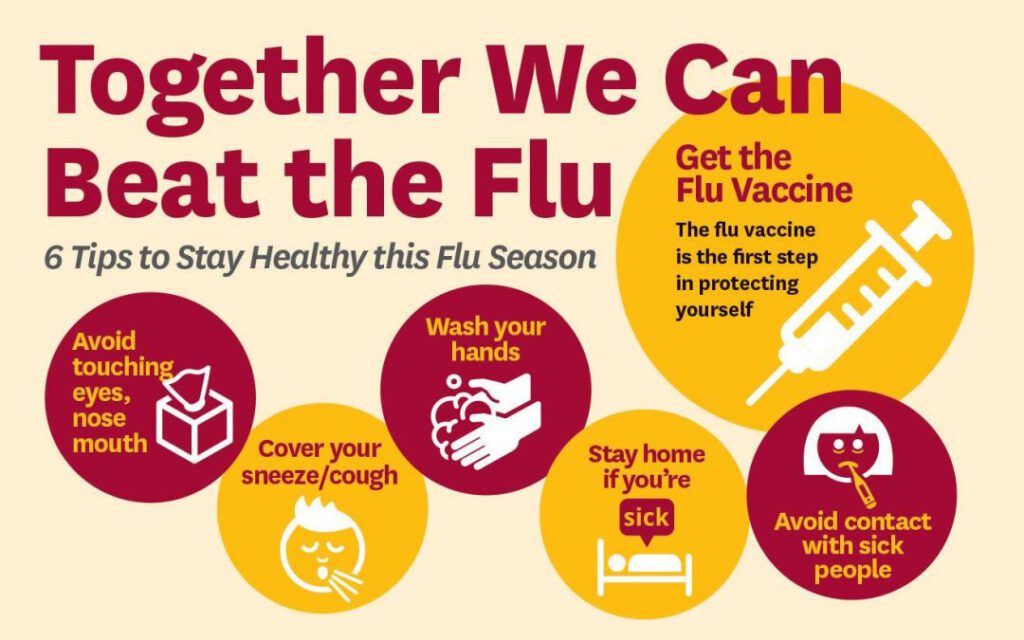By: Ai Le, Pharm. D Candidate
What is influenza?
Also called the Flu, it is a contagious respiratory illness caused by viruses that infect the nose, throat and sometimes lungs. Infection can lead to mild to severe illness and possibly death if left untreated. According to Centers for Disease Control and Prevention (CDC) in 2017-2018, the U.S. alone had 49 million cases of flu symptoms leading to 960,000 hospitalizations and 79,000 deaths. These rates were the highest since 2010.
How does the flu spread?
The flu is most contagious in the first three to four days after symptoms develop. Individuals with the flu can spread the illness through air droplets when sneezing, coughing or even talking around others. It is less common to get the flu by touching a surface or object that has the virus and then touching your own mouth, nose or eyes. However, hand washing is advisable.
What are signs and symptoms of the flu?
- Fever or feeling feverish/chills
- Cough
- Sore throat
- Runny or stuffy nose
- Muscle or body aches
- Headaches
- Fatigue
When should you get the flu shot?
You should get the flu vaccine before the flu season begins, which is typically by the end of October. The peak activity of the flu is between December and February, but can persist through May. It takes about two weeks after vaccination for antibodies to develop against the flu, so it is important to get it early.
Myth: Can the vaccine give you the flu?
No, flu vaccines cannot cause the flu illness. The vaccine is considered to be “inactivated” (killed) and are not infectious. You may have symptoms of swelling, redness or pain near the injection site, headache, mild fever, nausea or muscle soreness. These are considered normal symptoms due to your body reacting to the vaccine but it does not cause the flu. Another reason is that you may have gotten the flu before the vaccine has its full effect. It takes about two weeks for your body to produce antibodies against the flu.


